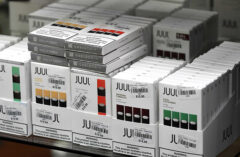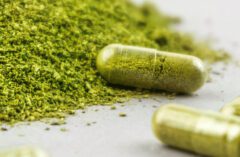Table of Contents
Last Updated on December 23, 2019 by Team Spinfuel
What Vape Retailers Need to Know Products with Zero Nicotine.
You might ask yourself, how does e-juice with zero-nic (zero nicotine) be considered as a tobacco product that should be regulated by the FDA deeming regulations?
Well, that question was asked of the FDA. You won’t believe their answer, or maybe you would. Here is the answer from the FDA.
As it relates to e-liquids that contain zero nicotine, generally, if your zero-nicotine product is not made or derived from tobacco, it may still be a tobacco product subject to FDA regulation if it is intended or reasonably expected to be used with or for the human consumption of a tobacco product; or intended or reasonably expected to alter the performance, composition, constituents, or characteristics of a tobacco product (with certain exceptions relating to controlling moisture or temperature for storage and initiating external heat source), your product is subject to FDA regulation. These products will be evaluated on a case-by-case basis. This applies to closed and open system devices that contain zero-nicotine.
Now is that a yes, or a no?
Zero-Nic is a Target
It is hard to imagine how a nicotine-free e-liquid could be “used with or for the human consumption of a tobacco product”. But if you take it down, that ENDS is considered a tobacco product, so putting no nicotine in an ENDS product, you now have a product that could be expected to be used with a tobacco product, or e-juice with nicotine. WOW…. That is a stretch.
The FDA is referring not to liquids but to ENDS that can be used with liquids that contains nicotine as well as liquids that do not. If so, it seems to be saying that such equipment counts as a tobacco product even if it is never used to deliver nicotine, provided that it could be used to deliver nicotine. By that logic, a disposable nicotine-free e-cigarette or a closed vaping system that accepts only nicotine-free cartridges would not qualify as a tobacco product—except that the last sentence (“This applies to closed and open system devices that contain zero-nicotine”) seems to say otherwise.“ Jacob Sullum Forbes Magazine
If you want to read the FDA’s entire convoluted response to the question “Are e-cigs that do not contain nicotine (or any other tobacco extracts) also covered by the FDA deeming regulations? If so, will they also require pre-market approval like products that do contain nicotine?”.
“The law defines a manufacturer as anyone who manufactures, fabricates, assembles, labels, or processes a tobacco product. Establishments, such as vape shops, that mix and/or prepare combinations of liquid nicotine, flavors, and/or other liquids, or an establishment that creates or modifies an aerosolizing apparatus for sale to consumers would be considered a tobacco product manufacturer.”
Since Deeming bans the sale of ALL new vapor products after August 8, 2016 (i.e. that aren’t on the market August 8), and since the Cole bill (HR 2058) and the Cole/Bishop Approps Cmte Amendment would move the February 15, 2007 grandfather date to August 8, 2016, it is EXTREMELY IMPORTANT that all vapor product manufacturers (per FDA’s definition above) thoroughly document every different SKU vapor product’s ingredients, components, manufacturing (including assembly, labeling and packaging) processes and retail sales on August 8, 2016 (not August 7 or August 9) in order to submit Substantial Equivalence (SE) reports to FDA (and avoid PMTAs) if/when Cole’s bill and/or the Cole/Bishop Amendment is/are approved, which may not occur until 2017 or 2018.
Another very important reason for ALL vapor manufacturers (including and especially vape shops) to carefully document each product (as described above to prepare for SE reports) on August 8, 2016 is because Deeming bans the sale of ALL new vapor products (that weren’t aren’t on the market August 8) and because FDA is very likely to “determine” that any e-liquid mixed by a vape shop on August 9 is a newly banned product.
FDA and Deeming? What about Zero Nic?
FDA is also very likely to “determine” that any assembly (including building coils, replacing components, changing batteries), packaging, repackaging, labeling or relabeling of a vapor product by vape shops after August 8 is the “manufacturing” of a new vapor product (in violation the Deeming).
Since vape shops likely “manufacture” more than half of the 100,000+ different vapor products marketed in the US, FDA could send warning, then cease-and-desist, letters to the 10,000 vape shops warning, then ordering, them to stop mixing e-liquids and stop assembling, packaging, repackaging, labeling, and relabeling products after August 8.
FDA may also purchase tens of millions of dollars worth of different vapor products from most/all vapor manufacturers (including vape shops and online retailers) on August 8, 2016 for their documentation, and then conduct subsequent purchases of the same products from the same manufacturer in September, October, November, December.
Then FDA could compare the two separately purchased products, and then send letters to manufacturers (whose products were slightly different) claiming the subsequently purchased product wasn’t the same as the one FDA purchased on August 8, and ordering the manufacturer (primarily vape shops) to stop selling that product.
Regulations Unfair, even for Zero-Nic
These are all reasons why all vapor product manufacturers need to carefully document each product they manufacture on August 8, 2016 (to cite in their defense if/when FDA sends them warning and/or cease-and-desist letters after August 8).
As it relates to e-liquids that contain zero nicotine, generally, if your zero-nicotine product is not made or derived from tobacco, it may still be a tobacco product subject to FDA regulation if it is intended or reasonably expected to be used with or for the human consumption of a tobacco product; or intended or reasonably expected to alter the performance, composition, constituents, or characteristics of a tobacco product (with certain exceptions relating to controlling moisture or temperature for storage and initiating external heat source), your product is subject to FDA regulation.
These products will be evaluated on a case-by-case basis. This applies to closed and open system devices that contain zero-nicotine.
“If the product does not contain nicotine and you have submitted a statement to FDA certifying so, according to the regulatory requirement, then you would not have to include the mandatory warning regarding the contents of nicotine in the product“. Jacob Sullum Forbes Magazine
Wendy Bivona
Wendy Bivona is also a vape retailer. Wendy is the owner of Premium eCigs, in Melbourne Florida. Follow Wendy on Facebook. Wendy is the most informed advocate on the pro-vaping side, and she will be bringing Spinfuel Readers and Vape Shop Owners vital information for Life after August 8th.








